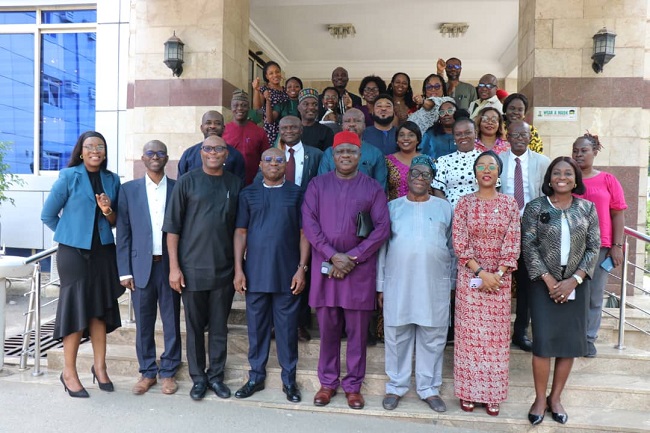Stakeholders in Nigeria’s climate and environmental sector have resolved to develop an action plan and intensify advocacy to fast-track the operationalisation and implementation of a regulatory framework for the country’s carbon market.

The resolution emerged at a recent Research Dissemination and Stakeholders’ Workshop organised by the Environment for Development (EfD) Nigeria, University of Nigeria, Nsukka.
EfD Nigeria is participating in broader international study on the Potential and Challenges of Voluntary Carbon Market in seven developing countries.
The Centre had an earlier engagement with the stakeholders at the commencement of the project in January 2025. The recent workshop was to update them on the findings of the study as it concerns Nigeria and to seek their input and validation.
Participants included representatives from relevant government agencies, the private sector, academia, and climate policy experts.
Absence of regulation hinders sale of carbon credits by investors
Presenting preliminary findings of the study, Prof. Nnaemeka Chukwuone and Dr. Chizoba Oranu of EfD Nigeria highlighted that Nigeria currently lacks an operational regulatory framework for its carbon market. The regulatory gap has stalled critical processes, such as the issuance of letters of no objection, which is an essential requirement for project developers to trade carbon credits.
The report further revealed that unclear land and forest ownership rights continue to discourage community participation in voluntary carbon market projects. In many instances, affected communities are excluded from crucial decision-making processes, including the development of governance frameworks.
Some of the other challenges identified by the study include limited capacity among policymakers in key aspects of carbon market operations such as Measurement, Reporting and Verification (MRV), pricing, validation, and carbon registries; over-reliance on foreign consultants, which raises costs and limits local ownership and the fragmentation of ongoing voluntary carbon projects due to the absence of a national policy direction.
Awareness on carbon market is needed
Some of the recommendations from the study include the integration of carbon market curricula in Nigerian universities; establishment of certification hubs in academic and research institutions; creation of a national carbon registry and MRV system to ensure data integrity and reduce dependence on foreign platforms; support for local institutions to undertake project validation and auditing, thereby lowering certification costs; and the formation of independent technical committees and action groups to lead reform implementation.
Despite current obstacles, including market volatility, delayed financial returns, limited local financing, and low technical capacity, the study notes that Nigeria has significant potential to become a major player in the global carbon market. Realising this, however, requires urgent reforms anchored on political will, institutional collaboration, and strategic public-private partnerships.
“In Nigeria, the carbon market concept remains vague to many. It is often perceived as an elusive promise tied to undelivered climate finance from developed countries,” said Prof. Nnaemeka Chukwuone, Director of EfD Nigeria.
He emphasised the need for widespread awareness creation and capacity building to enable meaningful Nigerian participation in the global carbon economy.
“The University of Nigeria stands firmly behind REPRC–EfD Nigeria in its mission to generate critical data and recommendations for shaping an effective and inclusive carbon market framework for the country,” said Prof. Oguejiofo Ujam, the Ag. Vice-Chancellor of the University of Nigeria.
Next steps and advocacy strategy
The stakeholders agreed to use the report of the study as a launch pad for advocacy to influence the operationalisation and implementation of Nigeria’s carbon market regulatory framework
They proposed using influential platforms, such as the Nigerian Governors Forum, to escalate awareness and policy influence of the study.
One immediate goal of the advocacy is to urge relevant government agencies to begin issuing letters of no objection to project developers, a practice already adopted in some countries without formal frameworks. This would enable Nigeria to unlock the economic and environmental benefits of carbon markets while a full regulatory structure is being anticipated.
They requested that a final report of the study and the advocacy plan should be made to them in August 2025.
By Inya Agha Egwu
